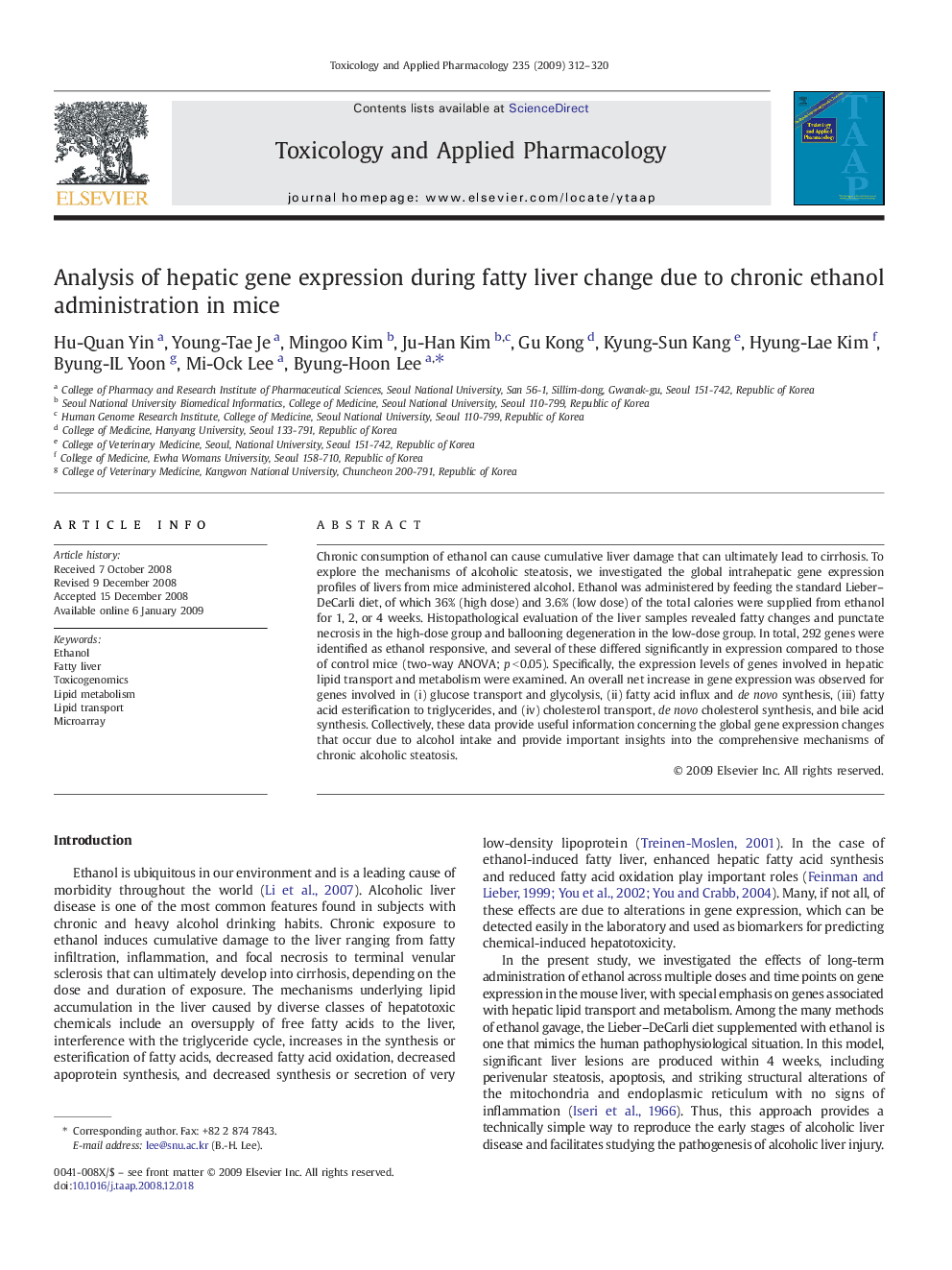| Article ID | Journal | Published Year | Pages | File Type |
|---|---|---|---|---|
| 2569996 | Toxicology and Applied Pharmacology | 2009 | 9 Pages |
Chronic consumption of ethanol can cause cumulative liver damage that can ultimately lead to cirrhosis. To explore the mechanisms of alcoholic steatosis, we investigated the global intrahepatic gene expression profiles of livers from mice administered alcohol. Ethanol was administered by feeding the standard Lieber–DeCarli diet, of which 36% (high dose) and 3.6% (low dose) of the total calories were supplied from ethanol for 1, 2, or 4 weeks. Histopathological evaluation of the liver samples revealed fatty changes and punctate necrosis in the high-dose group and ballooning degeneration in the low-dose group. In total, 292 genes were identified as ethanol responsive, and several of these differed significantly in expression compared to those of control mice (two-way ANOVA; p < 0.05). Specifically, the expression levels of genes involved in hepatic lipid transport and metabolism were examined. An overall net increase in gene expression was observed for genes involved in (i) glucose transport and glycolysis, (ii) fatty acid influx and de novo synthesis, (iii) fatty acid esterification to triglycerides, and (iv) cholesterol transport, de novo cholesterol synthesis, and bile acid synthesis. Collectively, these data provide useful information concerning the global gene expression changes that occur due to alcohol intake and provide important insights into the comprehensive mechanisms of chronic alcoholic steatosis.
